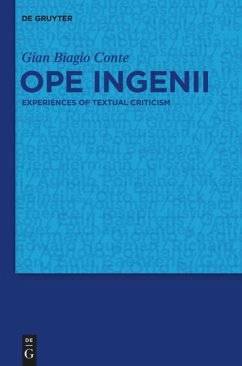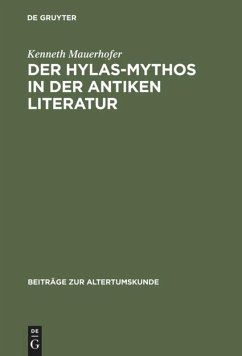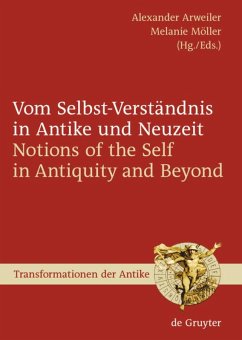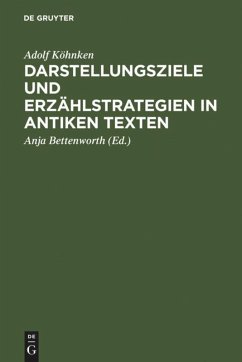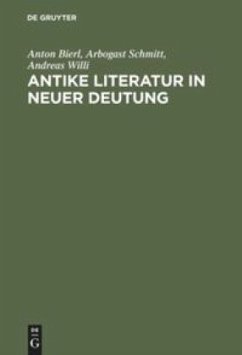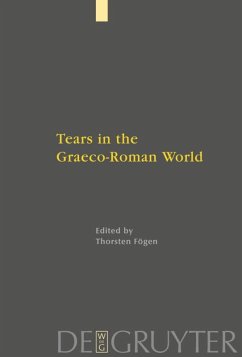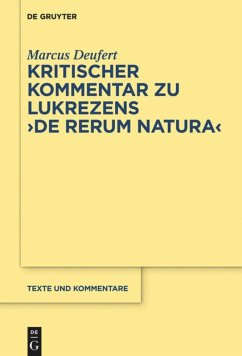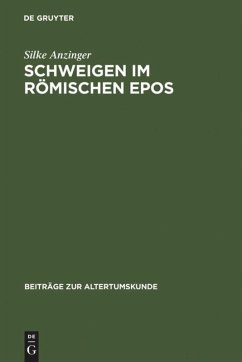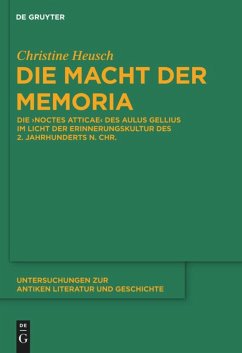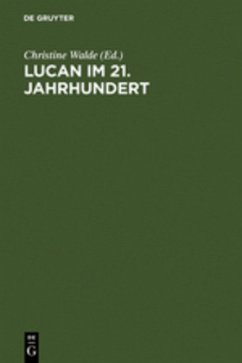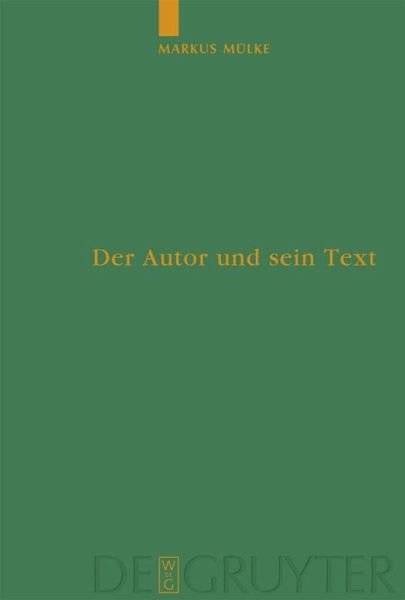
Der Autor und sein Text
Die Verfälschung des Originals im Urteil antiker Autoren

PAYBACK Punkte
0 °P sammeln!
The literature of Greek and Roman Antiquity handed down in manuscripts was exposed to the constant danger of texts being corrupted by manipulations not sanctioned by the author concerned. This can also be demonstrated in translations, for example if the text of a foreign-language book was altered by a translator without the original authorâ??s consent. The authors, however â?? i.e. those affected themselves â??were highly conscious of their auctorial status and condemned the secondary manipulation of their works as a presumptuous attack on the integrity of the original text. The present study devotes itself to these practices of falsification and distortion using evidence presented by the authors concerned over a period stretching from Early Greece to the beginning of the Middle Ages.
Die handschriftlich überlieferte Literatur der griechisch-römischen Antike war der ständigen Gefahr fremder, vom jeweiligen Verfasser nicht autorisierter Textverfälschungen ausgesetzt. Dabei bediente sich der verantwortliche Bearbeiter der Mittel der Interpolation, der Tilgung, der ändernden Ersatzfassung sowie der Transposition und griff nicht bloß in einzelne Stellen des Originals ein, sondern unterzog es nicht selten einer regelrechten Gesamtrezension oder epitomierte es zu einer verkürzten Ausgabe. Auch in der Übersetzungsliteratur lassen sich ähnliche Vorgänge nachweisen, etwa dann, wenn vor der Übertragung eines fremdsprachigen Buchs in eine andere Sprache der Text ohne Einwilligung des ursprünglichen Verfassers verändert wurde. Die Verfasser jedoch, also die Betroffenen selbst, verurteilten aus einem ausgeprägten Autorbewußtsein heraus die sekundäre Manipulation ihrer Werke als anmaßenden Anschlag auf die Integrität des echten Wortlauts. Während sie nur ausgewählten Kritikern erlaubten, vor der Publikation ein Urteil über den Text abzugeben, richteten sie an das Publikum die unmißverständliche Warnung, ihn nach der Publikation zu verfälschen.




